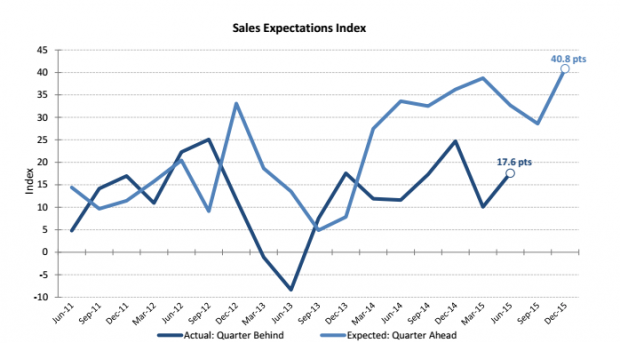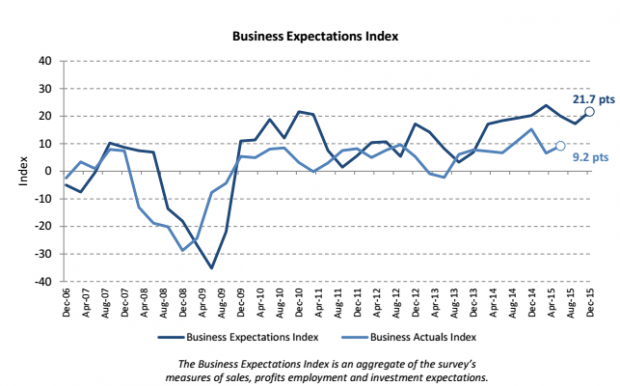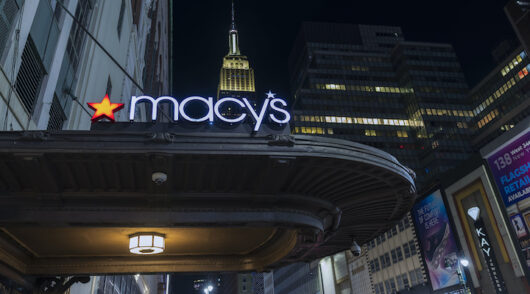 Sales expectations have rebounded sharply, reaching their highest level for more than a decade, suggesting the business community has a more optimistic outlook for Q4 2015.
Sales expectations have rebounded sharply, reaching their highest level for more than a decade, suggesting the business community has a more optimistic outlook for Q4 2015.
In marked contrast to the preceding period, Dun & Bradstreet’s latest Business Expectations Survey reveals the Sales Expectations Index for the fourth quarter surged to 40.8 points, up from 28.6 points last quarter and the highest level recorded since the fourth quarter of 2003. Some 48 per cent of companies surveyed expect to see an increase in sales in the fourth quarter of 2015.
Concerns surrounding weak demand demands for goods and a lack of consumer confidence have been offset by the combination of competitive pricing, a lower Australian dollar, favourable borrowing costs and government measures targeting small to medium-sized businesses.
The Actual Sales Price Index jumped to 17.6 points, from 10.1 points in the prior quarter but still below the 2014 peak of 24.7 points. According to the survey, 36 per cent of businesses increased sales during the second quarter, while 19 per cent saw a drop in sales.

Sixty-one cent of respondents were more optimistic about growing their business in 2015 compared to last year, up from a year low of 57 per cent in the third quarter.
According to Adam Siddique, head of corporate affairs at Dun & Bradstreet, the findings indicate the corporate sector may be emerging from its recent state of inertia.
“The strong survey results suggest businesses have a brighter short-term outlook than we’ve seen in recent months, which is a positive sign for increased economic activity during the second half of the year,” said Siddique.
“The upward trajectory broadly reflected throughout the survey results is encouraging. The sharp rise in sales expectations is particularly noteworthy and may indicate the recently announced budget measures for small to medium-sized businesses are gaining traction.
“Similarly, the discussion around changes to GST for imported online purchases and the lower Australian dollar could also have provided a much-needed confidence boost across the business community.”
The spike in the Sales Expectations Index was not uniformly reflected across all sectors, with the Business Expectations Survey revealing sales expectations in the wholesale sector eased slightly lower to 33.4 points, down from 34.2 in the prior quarter and comfortably below the 41.5 points recorded for the same period last year.
Similarly, despite the outlook for capital investment remaining flat, the retail sector bucked the broader trend with 19.8 per cent of companies forecasting increased capital investment, compared with 18.4 per cent last quarter and significantly up on 10.7 per cent for the same period in 2014.

Dun & Bradstreet’s Business Expectations Index, the average of the survey’s measures of sales, profits, employment and investment, has increased from its Q3 2015 low of 17.2 points, to reach 21.7 points for the December quarter. At this level the index is still below the 23.9 point peak for 2015 recorded in Q1, although it remains marginally higher than the 20.3 points for the same period last year.
“Business expectations have jumped strongly in what is a positive sign for the economic outlook over the remainder of 2015,” said Stephen Koukoulas, economic advisor to Dun & Bradstreet. “Record low interest rates and a weak Australian dollar are likely factors behind the lift in business optimism. The good news is that the overall level for the composite Business Expectations Index is consistent with GDP growth around 3 per cent.
“Of most encouragement is the strength in expected sales. Firms are looking for a strong pickup in activity through to the end of 2015, and this positive news is spilling over into higher expected profits, a lift in employment and steady capital expenditure.
“While business expectations can be fickle in the short term, there is no doubt now that the business sector is taking advantage of the favourable environment to ramp up activity. In these circumstances, the Reserve Bank is set to leave official interest rates unchanged in the near term,” Koukoulas said.





